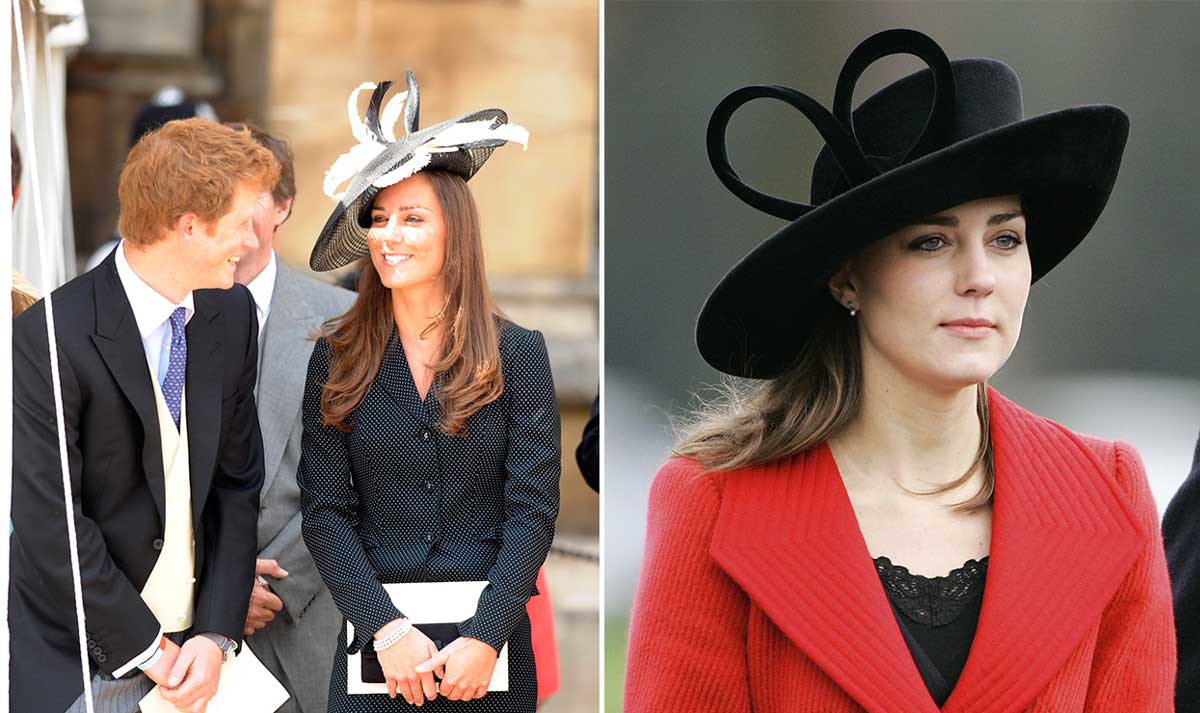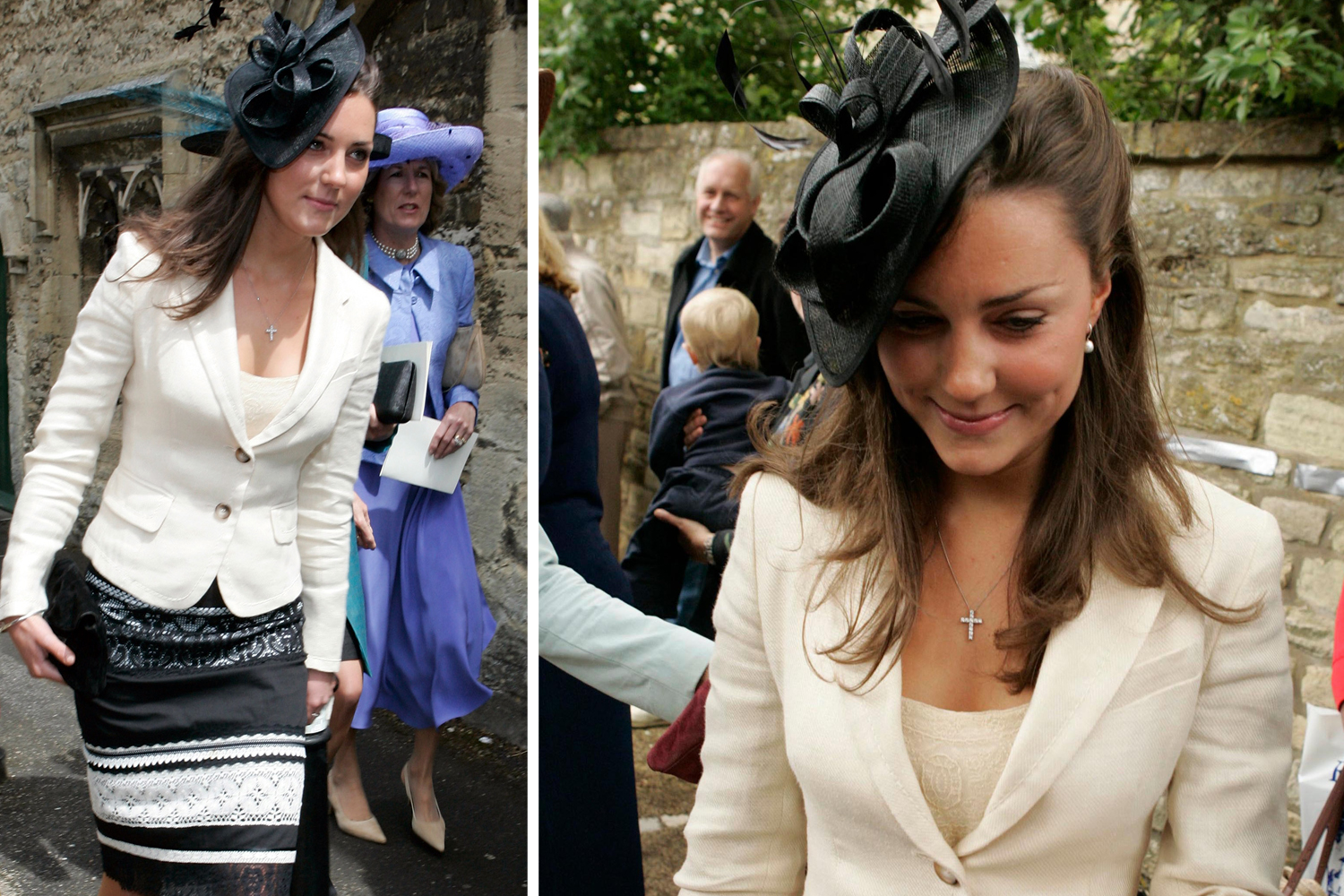Are you curious about the royal status of Catherine, the Duchess of Cambridge? Kate Middleton, as she is commonly known, has captured the hearts of many since she married Prince William in 2011. But was she born into royalty? Is she officially a princess? And what will she be called when William becomes king? In this post, we will explore the fascinating world of British royalty and answer these questions and more. Let’s dive in!

The Origin of Kate Middleton’s Royal Status.
Kate Middleton, now known as Catherine, Duchess of Cambridge, was not born into royalty. She was born on January 9, 1982, in Reading, Berkshire, England, to Michael Middleton and Carole Goldsmith. Her father worked as a flight dispatcher for British Airways, while her mother was a flight attendant. The Middletons are not a noble family, and Kate did not have any royal blood in her lineage. In fact, her parents were self-made millionaires who started their own successful party supply business, which provided them with financial stability. Kate grew up in a middle-class household and attended a private school before studying art history at the University of St. Andrews in Scotland. It was there that she met her future husband, Prince William, who was also a student at the university.
>> Must read Is Harry still a prince?
Decoding Kate Middleton’s Royal Title: Is She a Princess?
Catherine Middleton, the Duchess of Cambridge, is officially a princess. However, she is not referred to as “Princess Catherine” as she did not inherit the title through royal blood. Instead, she is known as Catherine, Princess of Wales. This is a title that was also held by William’s mother, Diana, Princess of Wales.
Kate’s full title is Catherine, Princess of Wales, GCVO (Knight Grand Cross of the Royal Victorian Order). She was given this title upon her marriage to Prince William, who holds the title of Duke of Cambridge. In the British peerage system, a woman who marries a prince will take on her husband’s title, but with the female equivalent. Therefore, Kate became the Duchess of Cambridge upon her marriage, and was later elevated to Princess when William’s father, Prince Charles, became king.
It’s important to note that being a princess does not necessarily mean that Kate will become queen. If William becomes king, Kate will be known as Queen consort, not Queen. This is because the title of Queen is reserved for the ruling monarch, and Kate will not be inheriting the throne.
Despite not having royal blood, Kate does have some connections to the British aristocracy. Her father, Michael Middleton, comes from a wealthy family with ties to the British aristocracy. However, Kate’s maternal family is considered to be commoners.
In short, yes, Kate Middleton is officially a princess. She holds the title of Catherine, Princess of Wales, but is not referred to as “Princess Catherine” due to the way in which she inherited her title. If William becomes king, she will become Queen consort, but will not inherit the throne herself.
Trending now – Does Harry get money from the Queen?
The Royalty Status of Princess Diana: Was She a Commoner?
As per the conversation, Lady Diana Spencer was considered a commoner when she married Prince Charles. However, it is important to note that Diana belonged to an aristocratic family that had been an integral part of English history for many years. Being born into a noble family, she was not exactly a commoner in the traditional sense of the word. In fact, her family could trace their lineage back to the Tudor period, which was a significant part of English history. Therefore, while Diana was not technically a member of the royal family or a peer, she was still part of the British aristocracy. It is this distinction that allowed her to be called “Lady Diana” before she became a princess.

The Difference Between Diana and Kate’s Royal Titles: Why Was Diana a Princess, But Kate Is Not?
When it comes to the titles of Diana and Kate, there seems to be a bit of confusion. One question that pops up frequently is why Diana was called Princess while Kate is not. The answer lies in their respective positions in the royal family. Diana was born into an aristocratic family and had royal blood, which made her a princess in her own right. When she married Prince Charles, she became Princess of Wales, a title that is traditionally given to the wife of the heir to the throne.
On the other hand, Kate Middleton was not born into the aristocracy, which means she does not have royal blood. When she married Prince William, he was not yet the heir to the throne, which meant that her title was Duchess of Cambridge, not Princess. However, this does not mean that Kate will never be called Princess. In fact, as William moves closer to becoming king, it is likely that she will be referred to as Princess Catherine.
It is worth noting that there is a difference between a duchess and a princess. A duchess is the wife of a duke, while a princess is a member of the royal family. However, the title of princess is not always used before the first name of the person. In Kate’s case, she is technically a princess, but she does not use the title in her name.
In conclusion, the reason why Diana was called Princess and Kate is not has to do with their positions in the royal family. Diana had royal blood and was married to the heir to the throne, which made her Princess of Wales. Kate, on the other hand, was not born into the aristocracy and was married to a prince who was not yet the heir to the throne. However, as William moves closer to becoming king, it is likely that Kate will be referred to as Princess Catherine.
What Will be Princess Kate’s Title Once Prince William Takes the Throne?

When Prince William becomes king, Kate Middleton will take on a new title. As the wife of the king, she will be referred to as the Queen Consort, which is a title given to the wife of a reigning king. This title has been used for centuries and is still in use today.
However, it is worth noting that the title of Queen Consort does not hold the same power as that of a reigning queen. The Queen Consort is a supportive role to the king and does not have any constitutional duties or powers.
As for her popular title, Kate will most likely be referred to as Queen Catherine, following the tradition of using the first name of the Queen Consort in addressing her. This is similar to how Queen Elizabeth II’s husband, Prince Philip, is referred to as the Duke of Edinburgh, and how the late Princess Diana was known as Princess Diana.
It is also worth mentioning that when Prince Charles ascends to the throne, his wife, Camilla, will be known as the Queen Consort, despite the controversy surrounding their marriage. This is because the title is automatically given to the wife of a reigning king, regardless of her past.
Overall, while Kate’s formal title may change, her role as the wife of the future king remains important in upholding the traditions and customs of the British monarchy.
Princess vs. Duchess: Understanding the Distinction
In the world of royalty, titles are often used to differentiate individuals from one another. Among these titles, Princesses and Duchesses are some of the most commonly used. While they may sound similar, there are significant differences between the two.
The primary difference between a Princess and a Duchess is their lineage. Princesses are typically born into royal families and are therefore blood-related to the monarch. On the other hand, Duchesses are made and are usually bestowed upon someone by the monarch as a title of nobility.
For instance, Meghan Markle was granted the title of Duchess of Sussex when she married Prince Harry. However, she will never be an actual Princess because she was not born into the royal family. In contrast, Princess Beatrice and Princess Eugenie, who are the daughters of Prince Andrew and Sarah Ferguson, are both legitimate princesses by birth.
It is also important to note that the title of Princess does not always indicate that the individual is a member of the reigning monarch’s immediate family. For instance, Princess Michael of Kent is married to the Queen’s cousin, but she is not a blood relative of the monarch.
In conclusion, the difference between a Princess and a Duchess lies in their lineage. Princesses are typically born into royal families, while Duchesses are made titles bestowed upon someone by the monarch.
Is Kate Middleton a descendant of royalty?
Yes, Kate Middleton does have royal blood in her. She is not a commoner as some people might believe. Her mother, Carole Middleton, is a descendant of King Edward IV, and her father, Michael Middleton, is a descendant of King Edward III. This means that Kate has a direct link to the royal family through her parents.
Kate’s royal ancestry has been a topic of much interest and discussion among the public. Her lineage has been traced back through several generations, and it is clear that she has a strong connection to the monarchy. Her ancestors include several kings and queens of England, making her a member of the royal family by blood.
It is worth noting that having royal blood does not automatically make someone a member of the royal family. However, in Kate’s case, she is married to Prince William, who is second in line to the throne, which means that she is now a part of the royal family.
Kate’s royal ancestry is something that she takes pride in, and it is a part of her identity. Her connection to the royal family is not just through her marriage to Prince William, but also through her family history. This is something that is important to her and to her children, who are also descendants of the royal family.
In conclusion, Kate Middleton does have royal blood, and she is not a commoner. Her lineage can be traced back to several kings and queens of England, making her a member of the royal family by blood. However, it is her marriage to Prince William that has made her a part of the royal family in an official capacity.
Examining the Possibility of Kate Middleton ascending to the Queenly Role
The question of whether or not Kate Middleton can ever become a queen is a valid one, and the answer is quite simple. Yes, she can. As the wife of Prince William, who is second in line to the throne, Kate will eventually become a queen when her husband is crowned king. However, this will only happen after Prince Charles, William’s father, steps down from the throne or passes away.
It is important to note that when Kate becomes queen, she will not be known as “Queen Kate.” Instead, she will be given the title of “Queen Consort,” which is the title given to the wife of a reigning king. This is because the title of “Queen” is reserved for the ruling monarch, and Kate will not be a ruling monarch in her own right.
While some may wonder if Kate’s lack of royal blood will hinder her ability to become queen, it is important to note that being born into royalty is not a prerequisite for becoming a member of the royal family. Kate’s marriage to Prince William has solidified her place in the royal family, and her dedication to her role as a royal has been evident throughout her time as a duchess.
In conclusion, while the question of whether or not Kate Middleton can become a queen may be loaded, the answer is straightforward. Yes, she can. However, she will only take on the title of “Queen Consort” and will not be a ruling monarch in her own right.
The Birth Process of Royal Families: Natural or Not?
The question of whether royals have natural births has been a topic of interest for many people. The answer is that it varies from one royal to another. Queen Elizabeth II, for instance, gave birth to all four of her children at home, which was the norm during those days. However, this is not the case for most of the current generation of royals. The Duchess of Cambridge, Kate Middleton, Meghan Markle, Princess Eugenie, and Sarah Ferguson all opted for hospital births.
It is interesting to note that the decision to have a hospital birth is a relatively recent phenomenon. In the past, giving birth at home was the norm, even for royals. Queen Elizabeth II’s decision to give birth at home was not unusual during her time. However, as medical technology and practices improved, hospital births became more common, and this trend has continued to this day.
Despite the change in birthing practices, the birth of a royal baby remains a highly anticipated event. The public and the media closely follow the progress of the pregnancy and the birth of the baby, with great excitement and anticipation. The arrival of a new member of the royal family is always an occasion for celebration, regardless of the circumstances of their birth.
In conclusion, while some royals, like Queen Elizabeth II, have had natural births at home, most of the current generation of royals have opted for hospital births. The decision to have a hospital birth is a personal one, and each royal has the freedom to choose the method of delivery that they feel is best for them and their baby. Regardless of the method of delivery, the arrival of a new royal baby is always a cause for celebration.
The future title of Kate when William becomes the king.
When Prince William becomes king, Kate Middleton’s title will be Queen Catherine. As the wife of the future king, she will be entitled to the highest rank in the British monarchy. Although some have speculated that she may be called Queen Kate, it is more likely that she will be referred to as Queen Catherine, which is her formal name.
It is important to note that being called “queen” in this context does not mean that Kate will have the same level of power and authority as the monarch. While she will undoubtedly have an important role to play in supporting her husband and representing the royal family, her position will be one of support rather than leadership.
It is worth pointing out that the question of Kate’s title has been a subject of much speculation and debate. Some have argued that she may not be called queen at all, as there is a precedent for the wives of kings to be referred to as “consort” rather than queen. However, it seems highly unlikely that this will be the case for Kate, given her popularity and the fact that she is widely regarded as a key figure in the royal family.
Overall, while there may be some uncertainty around Kate’s future title, it seems clear that she will play an important role in the British monarchy for many years to come. As Queen Catherine, she will continue to be an ambassador for the country and a symbol of the enduring power and appeal of the royal family.
Catherine, also known as Kate Middleton, was not born into royalty, but she has certainly become a beloved member of the royal family. Although she is officially titled as the Duchess of Cambridge, many wonder if she will one day become a queen. While she does not have any royal blood, her marriage to Prince William has solidified her place in the royal family. As for what she will be called when William becomes king, it is likely that she will be referred to as Queen Catherine. Regardless of her title, Kate has proven to be a kind and gracious member of the royal family, carrying on the legacy of Princess Diana, who was also a beloved member of the royal family despite being a commoner.


